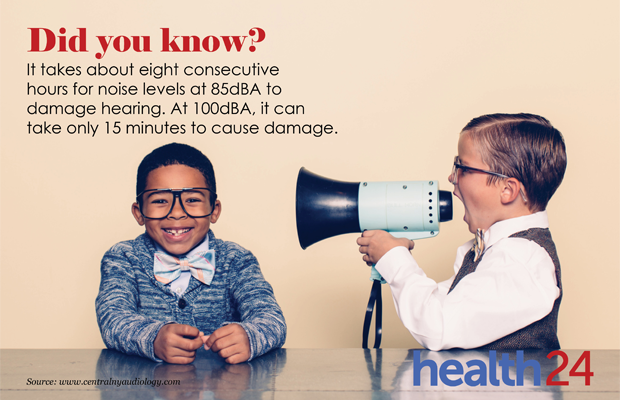child’s hearing?

Parents, do you consider the noise a toy makes before you buy it? Or how that Christmas gift from a family member will affect your child's hearing?
Toys that emit loud noises can have detrimental effects on young children. Hearing loss is irreversible, so it is important to protect your children’s hearing from an early age.
According to the American Speech Language Hearing Association, some toy sirens and squeaky toys can emit sounds of up to 90dBA – that’s as loud as a lawnmower.
In fact, people who work in environments where noise levels of 90dBA (and higher) are common are required to wear ear protection to protect their hearing.
Dangerous noise levels
The problem with noisy toys is not just the noise that they emit. Children often hold toys directly to their ears, which exposes them to as much as 120dBA – which is as loud as a jet plane taking off.
Noise at this level is not only painful, but can also result in permanent hearing loss.

When you are looking to buy new toys, always check the sound levels. Hold the toy to your ear and listen to the noise it makes. If a toy sounds too loud, don’t buy it.
Do an audit on the toys your child already has. If any of them are too loud, you can remove the batteries or cover the speakers with tape. Get rid of any toys that could pose a risk to your child’s hearing.
The Sight & Hearing Association (SHA) suggests that you download a sound level meter app on your phone to measure the sound level of a toy.
Kathy Webb, executive director of SHA, adds: "Your ears will do just fine, because if a toy sounds too loud to you, it is too loud for a child's young ears.”
Toys to avoid
Hearing loss doesn’t happen suddenly. Avoid buying these types of toys that may pose a risk to your child’s hearing:
- Rattles and squeaky toys
- Musical instrument toys
- Toy phones
- Toys that amplify or change the child’s voice
- Toys that make firearm sounds
5 ways to deal with noisy toys
Hear-it, a non-commercial web, established to increase public awareness of hearing loss, has some practical tips on dealing with noisy toys:
1. Before you buy a toy, listen to all the sounds it can make by holding it close to your ears. If it sounds too loud to you, it will be too loud for your child.
2. If a toy comes with a warning that it should not be used close to the ears, don’t buy it – kids will forget to follow these instructions while playing.
3. Reduce the volume of a toy by sticking tape over the speakers.
4. Avoid buying toy guns with sound effects and toy musical instruments – these are often the noisiest types of toys.
5. A carpet or mat can help absorb noise.






No comments